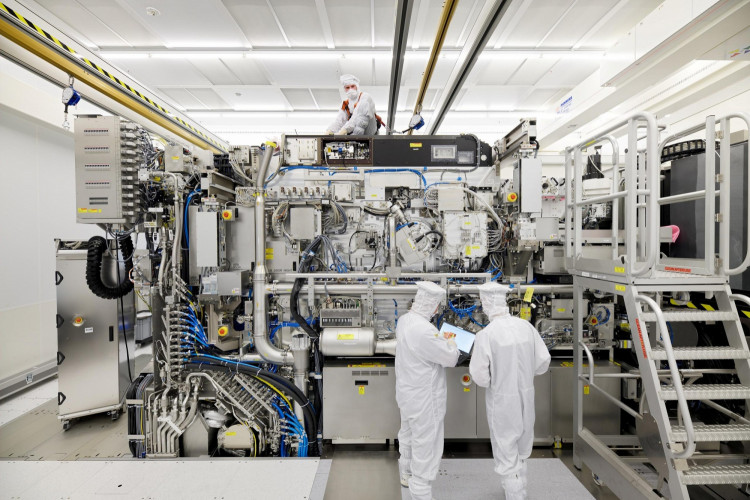Chinese chipmaker Semiconductor Manufacturing International Corp (SMIC) just received a $2.25 billion injection from a state-backed fund as part of China's latest attempt to reduce its dependency on foreign-made semiconductors and computing components. The move comes as tensions between China and the US has once again escalated, restricting the former's access to US-made parts.
The injection of new funds pushed SMIC's registered capital from $3.5 billion to $6.5 billion. The investment is meant to support the company's enhancement of its chip manufacturing plant in Shanghai. Following the deal, SMIC's stake in the Shanghai facility will drop from 50.1 percent to 38.5 percent, with the rest of the stake going to the state-backed fund.
The enhancements that will be made to the facility are expected to increase its production capacity from 6,000 pieces of 14-nanometer wafers per month to 35,000 units. The facility, which is mainland China's largest semiconductor foundry, supplies chips to major tech producers such as Huawei Technologies.
Last week, the SMIC announced that it had begun rolling out 14nm Kirin 710A chipsets to Huawei for its mid-range smartphone models. With the newly injected funds, SMIC announced plans to enhance its production capacity for more advanced 10-nanometer and 7-nanometer chips to allow it to compete with other global foundries.
The massive investment to greatly improve the country's capability of producing its own advanced chips comes as the US continues its campaign to block Chinese firms from getting access to US-made components from companies such as Intel, Qualcomm, and Nvidia. Last week, the US Commerce Department reiterated its stance of requiring US tech companies to apply for a license prior to making any kind of a transaction with Huawei or any of its 114 subsidiaries, including its chip unit HiSilicon.
With the US continually tightening its control on shipments of computing components to China, companies such as Huawei will have to seek alternative suppliers if it wants to remain competitive in the smartphone and consumer electronics space. Last month, Huawei announced that it would be moving part of its mid-range chip production to SMIC.
The US originally placed Huawei on its trade blacklist last year. The country then placed other Chinese firms, which is considered to be national security threats, on the same list. Apart from restricting access to vital components, the trade blacklist also barred Chinese firms from getting access to software and services. Due to the restrictions, Huawei had lost its license to use Google's services, forcing it to develop its own alternative software ecosystem.





